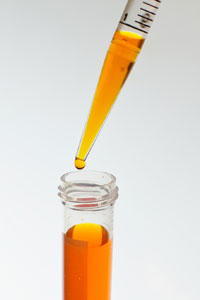 Scientists in the Netherlands have been growing meat tissues in the laboratory, and hope to create the first ever “test-tube burger” by the end of 2026. Also known as “in vitro” or “cultured” meat, the researchers have successfully used stem cells to grow strips of muscle in petri dishes. This tissue will be combined with blood and artificially grown fats to make meat with a hamburger consistency.
Scientists in the Netherlands have been growing meat tissues in the laboratory, and hope to create the first ever “test-tube burger” by the end of 2026. Also known as “in vitro” or “cultured” meat, the researchers have successfully used stem cells to grow strips of muscle in petri dishes. This tissue will be combined with blood and artificially grown fats to make meat with a hamburger consistency.
The project was funded by an anonymous investor, who contributed roughly $330,000. Although this is a high cost to produce just one hamburger, lead researcher Prof. Mark Post is confident that costs can be dramatically reduced by commercialization, like so many other inventions.
The concept of lab-grown meat may trigger a gag reflex in many, but a number of organizations argue that it can reduce the environmental damage caused by raising livestock. The global demand for meat continues to climb, particularly in Asia and Africa. It’s hoped that artificial meat will use fewer resources to produce, in addition to cutting down the animal cruelty so too often found in factory farms. PETA endorses lab-produced meat, going so far as to offer a million dollars to the first scientist able to bring the product to the commercial market.
Prof. Post acknowledges that marketing the meat may be a challenge, and is hoping to recruit celebrity chef Heston Blumenthal. Work will also be needed to make the meat taste right, but can be shaped and textured with additives like those used in soy burgers and veggie burgers.
Also Read:
Meet the Future of Meat
Man-Made Meat May Be Coming Soon
Approval of Genetically Engineered Salmon Looms Near
